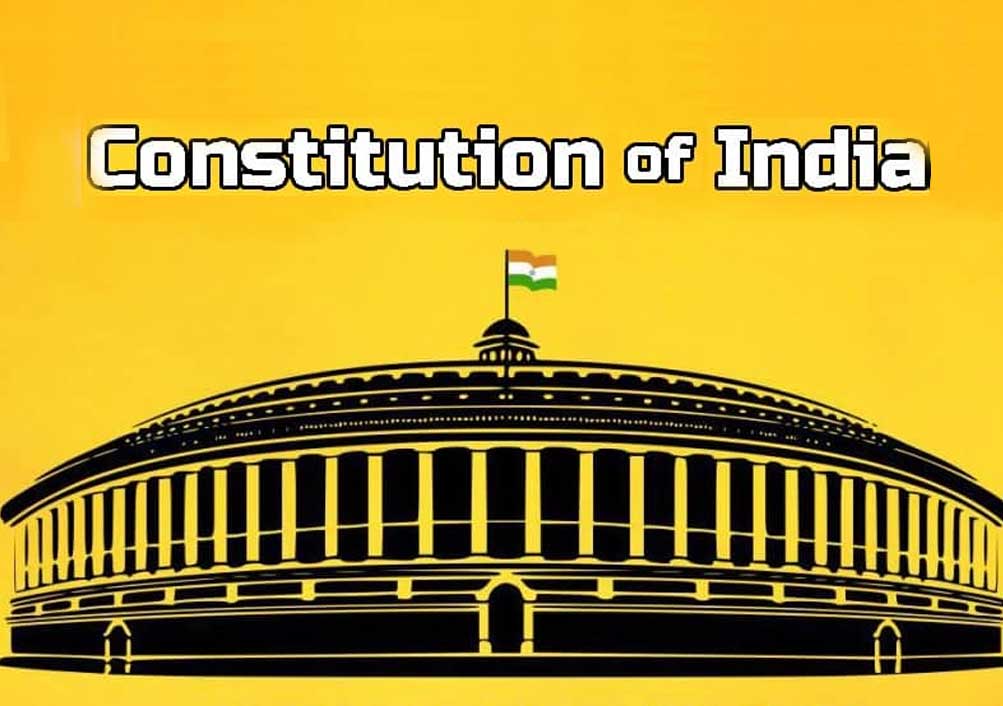In Civil Appeal-SLP (C) Diary No. 13202 Of 2020-SC- Right against deprivation of property unless in accordance with procedure established by law, continues to be constitutional right under Article 300-A: Supreme Court Justices S.Ravindra Bhat & Pamidighantam Sri Narasimha[06-04-2022]

Read Judgment: SUKH DUTT RATRA & ANR v. STATE OF HIMACHAL PRADESH & ORS
Tulip Kanth
New Delhi, April 7, 2022: Exercising its extraordinary jurisdiction under Articles 136 and 142 of the Constitution, the Supreme Court has directed the State to treat the subject lands as deemed acquisition and appropriately disburse compensation to the appellants-land owners.
Referring to the judgment of this Court in Vidya Devi v. State of Himachal Pradesh, the Division Bench of Justice S.Ravindra Bhat and Justice Pamidighantam Sri Narasimha reiterated that the forcible dispossession of a person of their private property without following due process of law, was violative of both their human and constitutional rights under Article 300-A of the Constitution.
The factual background of this case was such that the appellants-Sukh Dutt Ratra and Bhagat Ram claimed to be owners of land situated in District Sirmaour, Himachal Pradesh (subject land). The Respondent-State utilised the subject land and adjoining lands for the construction of the ‘Narag Fagla Road’ in 1972-73, but allegedly no land acquisition proceedings were initiated, nor compensation was given to the appellants or owners of the adjoining land.
Later, the State was directed to initiate land acquisition proceedings and a notification under Section 4 of the Land Acquisition Act, 1894 was issued and award was passed fixing compensation at Rs 30,000 per bigha.When proceedings under Section 18 for enhancement of compensation were initiated by ten neighboring landowners, it was held that the reference petitioners were entitled to enhanced compensation. In 2009, the High Court dismissed the appeal against this order by those claimants, who were seeking statutory interest from the date of taking possession (rather than date of initiation of acquisition proceedings).
Similarly situated land owners, filed writ proceedings before the High Court and the Court granted relief to some but declined the plea of others.This led the appellants to file a writ petition before the High Court in 2011, seeking compensation for the subject land or initiation of acquisition proceedings under the Act. This writ petition was disposed of, with liberty to file a civil suit in accordance with law. Aggrieved, the appellants approached this court through these appeals.
At the outset, the Bench noticed,”While the right to property is no longer a fundamental right [Constitution (Forty Fourth Amendment) Act, 1978], it is pertinent to note that at the time of dispossession of the subject land, this right was still included in Part III of the Constitution. The right against deprivation of property unless in accordance with procedure established by law, continues to be a constitutional right under Article 300-A.”
Stating that the initiation of acquisition proceedings initially in the 1990s occurred only at the behest of the High Court, the Division Bench expressed that State’s actions, or lack thereof, had in fact compounded the injustice meted out to the appellants and compelled them to approach this court, albeit belatedly.
The Division Bench was of the opinion that the State’s lackadaisical conduct was discernible from this action of initiating acquisition proceedings selectively, only in respect to the lands of those writ petitioners who had approached the court in earlier proceedings, and not other land owners.In this manner, at every stage, the State sought to shirk its responsibility of acquiring land required for public use in the manner prescribed by law.
Talking about the clandestine approach of the State, the Bench explained further that the State in an arbitrary manner actively tried to limit disbursal of compensation as required by law, only to those for which it was specifically prodded by the courts, rather than to all those who are entitled. This arbitrary action, was violative of the appellants’ prevailing Article 31 right (at the time of cause of action), undoubtedly warranted consideration, and intervention by the High Court, under its Article 226 jurisdiction.
The Top Court clarified that the State was unable to produce any evidence indicating that the land of the appellants had been taken over or acquired in the manner known to law, or that they had ever paid any compensation.
The Bench was also not not moved by the State’s contention that since the property was not adjoining to that of the appellants, it disentitled them from claiming benefit on the ground of parity. To this, the Court stated that despite it not being adjoining (which is admitted in the rejoinder affidavit filed by the appellants), it was clear that the subject land was acquired for the same reason – construction of the Narag Fagla Road, in 1972-73, and much like the claimants before the reference court, these appellants too were illegally dispossessed without following due process of law. In the absence of written consent to voluntarily give up their land, the appellants were entitled to compensation in terms of law, added the Bench.
The Bench also held that the approach taken in Vidya Devi’s Case(Supra) wherein the Apex Court rejected the contention of ‘oral’ consent to be baseless and outlined the responsibility of the State, was squarely applicable to the nearly identical facts in the present case.
Hence, directing the State to appropriately disburse compensation to the appellants, the Top Court also ordered the respondent-State to pay legal costs and expenses of Rs 50,000 to the appellant considering the disregard for the appellants’ fundamental rights which caused them to approach this court and receive remedy decades after the act of dispossession.
Sign up for our weekly newsletter to stay up to date on our product, events featured blog, special offer and all of the exciting things that take place here at Legitquest.




Add a Comment